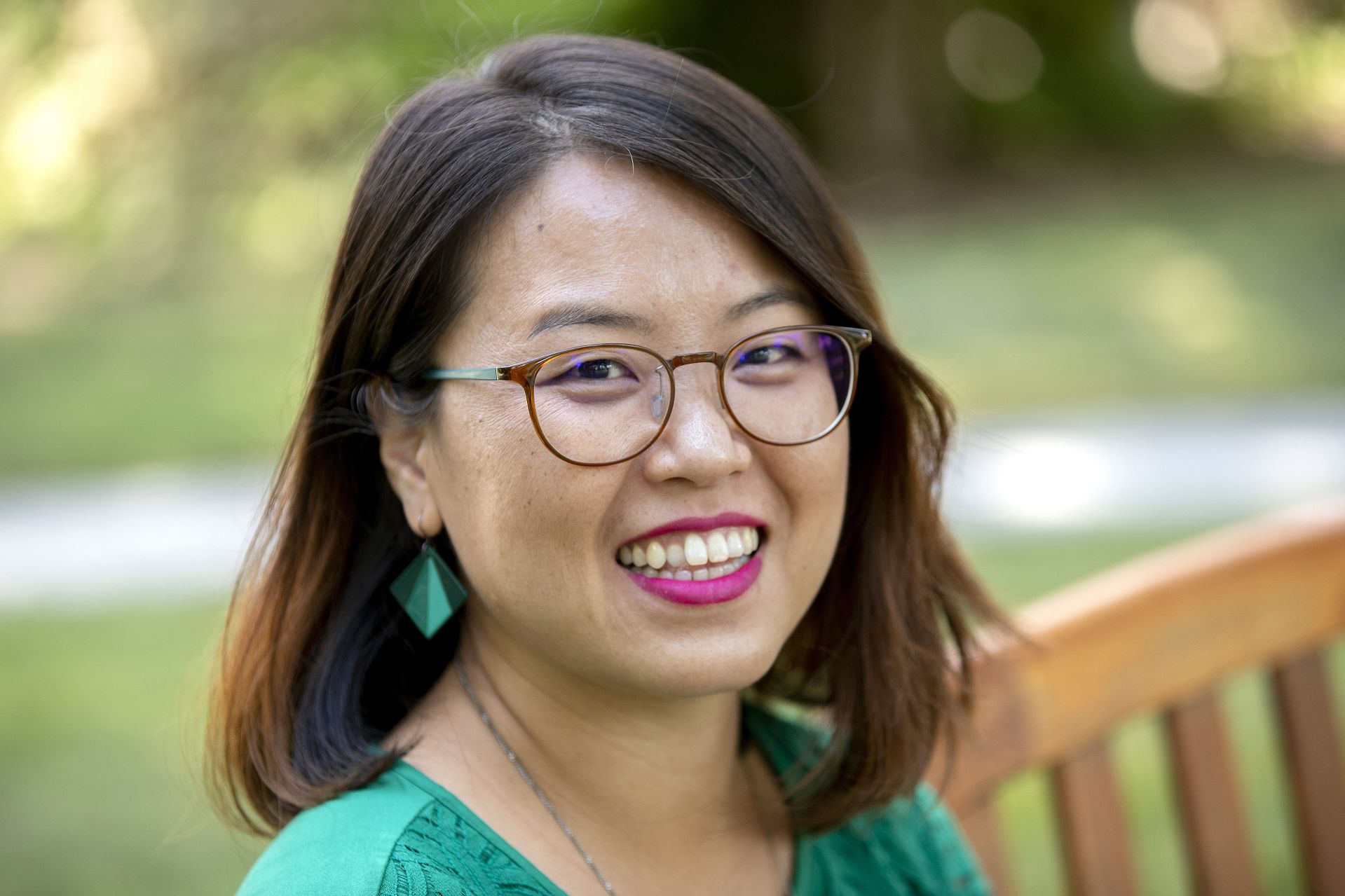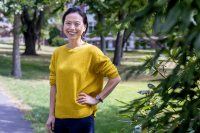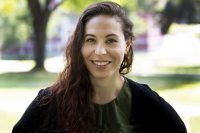
Each week for the next nine, we’ll be introducing new Bates professors who have tenure-track positions on the faculty.
This year’s nine tenure appointments are in the disciplines of art and visual culture, classical and medieval studies, economics, English, environmental studies, dance, politics (two appointments), and psychology.
This week, we introduce Seulgie (Claire) Lim.
Name: Seulgie Lim
Title: Assistant Professor of Politics
Degrees from: Boston University, Ph.D. in political science; Seoul National University, M.A. in international cooperation, B.A. in international relations
Her research: Lim studies efforts at gender equality in West African nations, particularly the effects of a 2010 gender parity law in Senegal that mandates that the country’s National Assembly and other legislative bodies comprise 50 percent women.
“There are different ways of looking at the concept of gender equality or gender parity,” Lim says. “For Senegalese women, their roles and identities as mothers, wives, and caregivers are very important. Passing this law on gender parity didn’t necessarily mean that they wanted to give up their household work or have men do half the chores, for example.”

“Law does not exist as a legal tool only. It has to fit within society. My argument is that the gender parity law does face certain social and cultural and religious challenges — but from a theoretical perspective, it contributes to the diversity of feminisms in Africa.”
Finding her path: Lim was born in South Korea. Her father had a steady job but it “didn’t necessarily allow him to spend that much time with our family.” That’s not what he wanted, she says.
“West Africa definitely holds a special place in my heart.”
So he decided to take “a big adventure, a big risk” by taking a position in Mauritania, a country he’d never heard of until someone he knew went to work there. The family lived there for 15 years before moving back to Korea for Lim’s and her sister’s college education.
“West Africa definitely holds a special place in my heart,” Lim says. She lived there as a young child and teenager, not yet able to grasp its “political, social, or religious aspects.”
When she arrived at Boston University for doctoral study, “one of the first classes I took was on African politics. It confirmed some of the things I instinctively knew because I had grown up there, but it was a shift in terms of how I can see these things from an academic perspective.”
Inside out: On a flight to Senegal to do fieldwork, Lim looked out the window as the plane was about to land. “The landscape is just so different from what I was experiencing traveling back and forth between the U.S. and mostly Korea. It was like going back home for me — it’s very similar in many ways to Mauritania.”
Being both an outsider and insider, “thinking about my identity within all of that, was actually a really exciting part of field work and research.”
That aspect of fieldwork was alluring to Lim, the “feeling of going back home — eating the food that I used to eat when I was growing up. It’s not necessarily academic but has to do with how you feel as a researcher. I met childhood friends that I had not seen for more than 15 years.”
Being both an outsider and insider, “thinking about my identity within all of that, was actually a really exciting part of field work and research.” Along the way, Lim learned to interrogate her inside-outside perspective.
During doctoral studies, a professor from Senegal was “really good at making me aware of my own prejudices as I was doing my research — after all, it had been such a long time since I left the country. And so I had some preconceived notions that I wasn’t even aware of, and he pointed those out.”
Why teach: “I really like the fact that students can learn as much from me as I can learn from them. It’s not just a one-way process where I’m regurgitating what they have read.
“One of the things that impressed me during my visit to Bates is that whenever I was talking to a faculty member, there would always be one or two students passing by and waving hands. I really liked that connection, that we get to know students not only as students, but also as individuals who have their own experiences and stories.”
Sample lesson: “For all the classes I have taught, I show a TED talk by Chimamanda Ngozi Adichie, ‘The Danger of a Single Story,’” Lim says. The well-known talk explores how stereotypes and misunderstanding emerge when we hear and accept just one story about another person or country.
“It’s a continent of energetic women’s movement, positive political and social changes, and promising technological advances.”
“I like to set that as the foundation — we are going to pay attention to all the different stories that are out there,” Lim says.
“I want students to know that Africa is not just a continent with civil conflicts, with diseases, with debts, but there are so many different things we can learn about all the different countries on the continent — it’s a continent of energetic women’s movement, positive political and social changes, and promising technological advances.”




